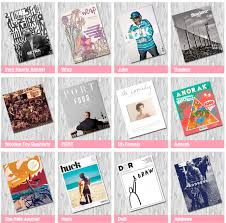~ Publishers will look for a track record of being published when considering your work,
Magazines
& Anthologies
Publishers will look for a track
record of being published when considering your work, so publishing individual
poems in magazines and journals is a good way to get started. Some magazines
pay, but all should give you a free copy of the issue. For comprehensive UK
magazine listings see:
·
www.poetrylibrary.org.uk/magazines (includes print
and online magazines)
·
The
Writers’ & Artists’ Yearbook (includes non-poetry-specific magazines)
Pamphlets
A lot of poets will publish
at least one pamphlet before putting out a full collection, allowing you to
experiment with curating a smaller body of work and (hopefully) gaining
attention for it. Some useful resources include:
·
www.poetrylibrary.org.uk/publishers
·
If you are considering
self-publishing at this stage, read the SoA Guide to Self-Publishing first (free for
members / £12 for non-members)
·
Guide to Marketing Your
Book by
Alison Baverstock and Catherine Charley, available from the SoA website (free /
£6)
Protect Your
Rights
Whenever you agree to
publish, ensure you’re aware of exactly what you’re agreeing to. Copyright should
remain with you for works published in magazines or anthologies. For pamphlets
and collections you should receive a contract. It is essential you read this
properly. Useful SoA guides on the subject include:
·
Guide to Publishing
Contracts
(free for members / £12 for non-members)
·
Guide to Copyright and
Permissions
(free / free)
The SoA advisory team offer
a clause-by-clause contract-vetting service to all members. Join at www.societyofauthors.org/Join.
Payment for
Poems
Most magazines will have
information on their website about whether they pay contributors. Anthologies from
larger publishers should offer a fee for inclusion of your work, while smaller
ones may offer copies of the book instead. See the SoA guidance on rates and
fees for more information:
Reading/Performance
Fees & Expenses
Often you will be expected
to read for free at smaller local events and magazine or anthology launches. It
is up to you whether or not to take these opportunities, but do consider how
much money you are having to spend in travel and accommodation as set against
the opportunity to market your work and meet people. If you’re asked to read by
bigger events or festivals where there is a charge for tickets, think about your
right to be paid for your work and time. Useful resources include:
·
Andrew Bibby’s Reckoner: www.andrewbibby.com/reckoner.html
·
SoA guides to appearances,
visits, events and festivals: www.societyofauthors.org/Advice/Guides
(all
free)
The Poetry and Spoken Word
Group is running a survey gathering information on poets’ experiences at events
and festivals. We’ll use the data to put together some industry best practice
guidelines for poets to use in future negotiations. The more poets we hear
from, the more helpful this will be – take it here: www.surveymonkey.co.uk/r/PSWG_Events_Survey.
Money for
Nothing (Near Enough)
If you have anything
published in print, it is well worth taking the time to sign up to the Authors’
Licensing and Collecting Society, which distributes money from photocopying and
scanning licensing. Membership of the ALCS is free with SoA membership. You
should also register under the Public Lending Right (PLR) system, which ensures
you are paid when your book is loaned from public libraries:
Prizes
Invest any entrance fees
wisely; make sure
you’re comfortable with the terms and conditions and beware prizes which take
exclusive rights or oblige you to undertake extra work. SoA members are welcome
to ask for advice on competition terms and conditions if unsure. Some free-to-enter
awards include:
·
The Eric Gregory Awards www.societyofauthors.org/Prizes/Poetry/Eric-Gregory
·
The Jane Martin Poetry
Prize
www.girton.cam.ac.uk/jane-martin-poetry-prize
Funding
& Subsidies
Arts Council England offer
funding to poets for specific projects and the Society of Authors has grants
for works in progress. Keep an eye out for subsidised writers’ residencies too.
See:
RESOURCES
The following are
useful resources, and many have mailing lists to keep you up to date with the
latest news, events and opportunities:
The Poetry
Society
www.poetrysociety.org.uk
NAWE
www.nawe.co.uk/the-writers-compass
The Poetry Library
NAWE
www.nawe.co.uk/the-writers-compass
The Poetry Library
www.poetrylibrary.org.uk
The Scottish Poetry Library www.scottishpoetrylibrary.org.uk
The Poetry School
www.poetryschool.com
Apples and Snakes
The Scottish Poetry Library www.scottishpoetrylibrary.org.uk
The Poetry School
www.poetryschool.com
Apples and Snakes
www.applesandsnakes.org
Write Out Loud
www.writeoutloud.net
The Poetry Business
Write Out Loud
www.writeoutloud.net
The Poetry Business
Poetry London
The Poets’ Resource
Arts Jobs
www.artsjobs.org.uk
www.artsjobs.org.uk
Writers’ & Artists’ Yearbook www.writersandartists.co.uk
Arvon Foundation
www.arvon.org
www.arvon.org
Poetry Can
www.poetrycan.co.uk
www.poetrycan.co.uk
The Poetry Kit
www.poetrykit.org
www.poetrykit.org
Poets & Writers
Aerogramme Writers’ Studio www.aerogrammestudio.com
Jobs
www.jobs.ac.uk
www.jobs.ac.uk
THE SOCIETY OF AUTHORS
·
Guides can be downloaded from the website or ordered via 020
7373 6642 or info@societyofauthors.org.
·
Join at www.societyofauthors.org/Join for professional
advice on appearance fees, competition T&Cs, contractual terms, permissions
for anthologised work and more.
·
The SoA is your trade union, advising individuals and
speaking out for the profession. It is open to all types of writers at all stages
of their careers.
THE SOCIETY OF
AUTHORS POETRY AND SPOKEN WORD GROUP
·
Contact Nadia Bonini at nbonini@societyofauthors.org or visit www.societyofauthors.org/groups/pswg for more
information.












Post a Comment